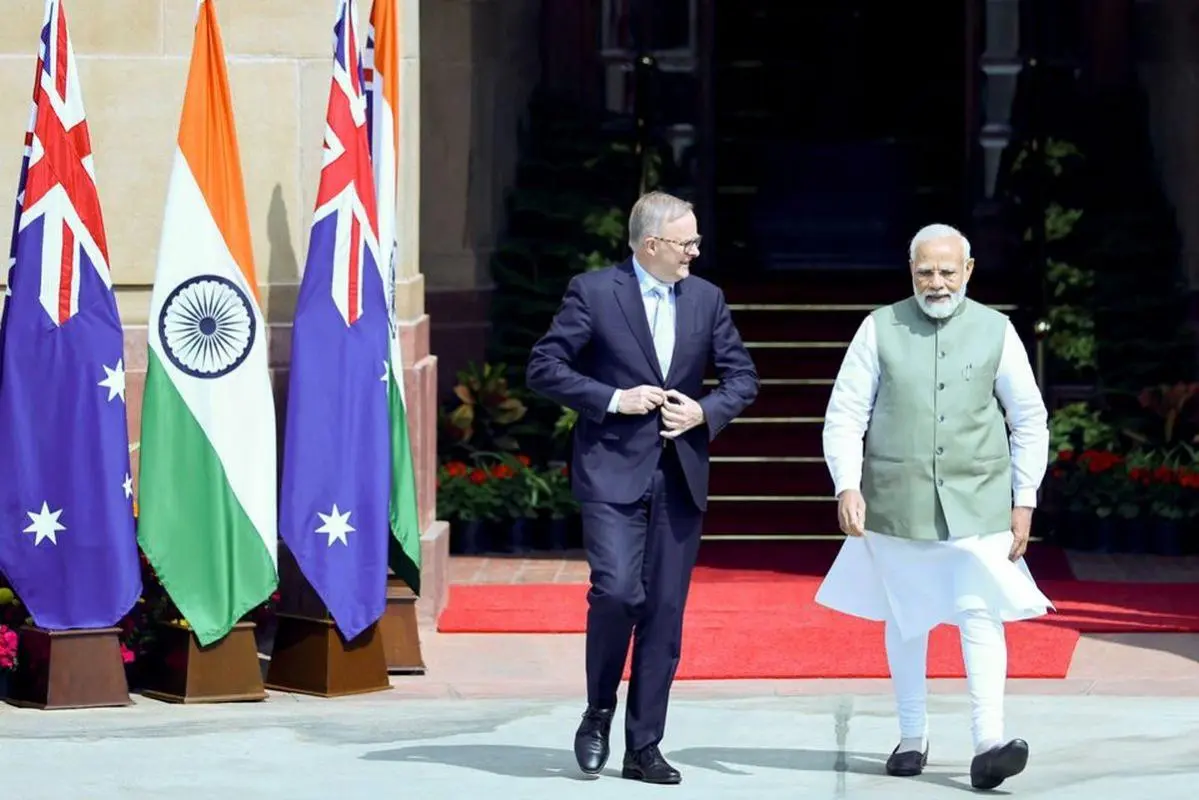India Rejects Tariff Demands in India-Australia Trade Pact Negotiations

India has firmly rejected Australia’s request for more significant tariff reductions on dairy products and alcoholic beverages, causing a setback in the negotiations for a comprehensive bilateral trade agreement. This decision comes after the two nations had previously signed an interim deal in 2022, which lowered tariffs on various goods. However, discussions for a more extensive Comprehensive Economic Cooperation Agreement (CECA) have stalled, primarily due to disagreements over dairy and wine tariffs.
Stalled Negotiations Over Tariffs
The ongoing negotiations between India and Australia have hit a roadblock, particularly concerning tariff concessions on dairy and wine. According to Indian government sources, India is unwilling to meet Australia’s demands for deeper cuts in these sectors. A senior Indian official, who requested anonymity, emphasized the potential negative impact on millions of Indian farmers and the domestic wine industry. The official stated, “There is no question of agreeing to Australia’s demands for further tariff cuts on dairy and wine.”
Australia has been advocating for more aggressive tariff reductions. Under the current interim agreement, tariffs on Australian wine priced above $5 per 750ml bottle were reduced from 150% to 100%, with a gradual target of 50% over ten years. For wines priced above $15, tariffs were cut to 75%, aiming for a target of 25% in the same timeframe. Australia is now pushing for lower price thresholds for these cuts and a faster implementation of the reductions.
Concerns from Indian Farmers and Industry
India’s resistance to further tariff reductions is largely influenced by growing opposition from farmer groups and politicians, particularly in Gujarat and Maharashtra, which are significant agricultural regions. The alcoholic beverages industry, valued at approximately Rs 2.9 lakh crore ($35 billion), has also expressed concerns about making additional concessions.
The dairy sector presents a particularly sensitive issue for India. Australia is seeking improved access for various dairy products, including cheese and high-protein whey concentrate, which currently face tariffs ranging from 20% to 30%. However, the Indian dairy sector remains a significant barrier to these negotiations. Karl Ellis from Dairy Australia noted that while mainstream dairy exports to India may not be feasible, niche products could potentially tap into the $30–40 million Indian market, which is currently dominated by European suppliers.
Future of the Bilateral Trade Pact
Despite the current impasse, both India and Australia remain committed to advancing their trade discussions. Indian officials have indicated a willingness to reduce tariffs on industrial and non-agricultural goods while seeking greater access to Australia’s services market and visa quotas.
Australia’s Department of Foreign Affairs has reiterated that negotiations are still supported by both prime ministers. They believe that a finalized CECA would not only enhance bilateral trade but also foster a more resilient economic partnership between the two nations. As discussions continue, both sides are looking for ways to bridge their differences and move forward with the trade agreement.
Observer Voice is the one stop site for National, International news, Sports, Editor’s Choice, Art/culture contents, Quotes and much more. We also cover historical contents. Historical contents includes World History, Indian History, and what happened today. The website also covers Entertainment across the India and World.

